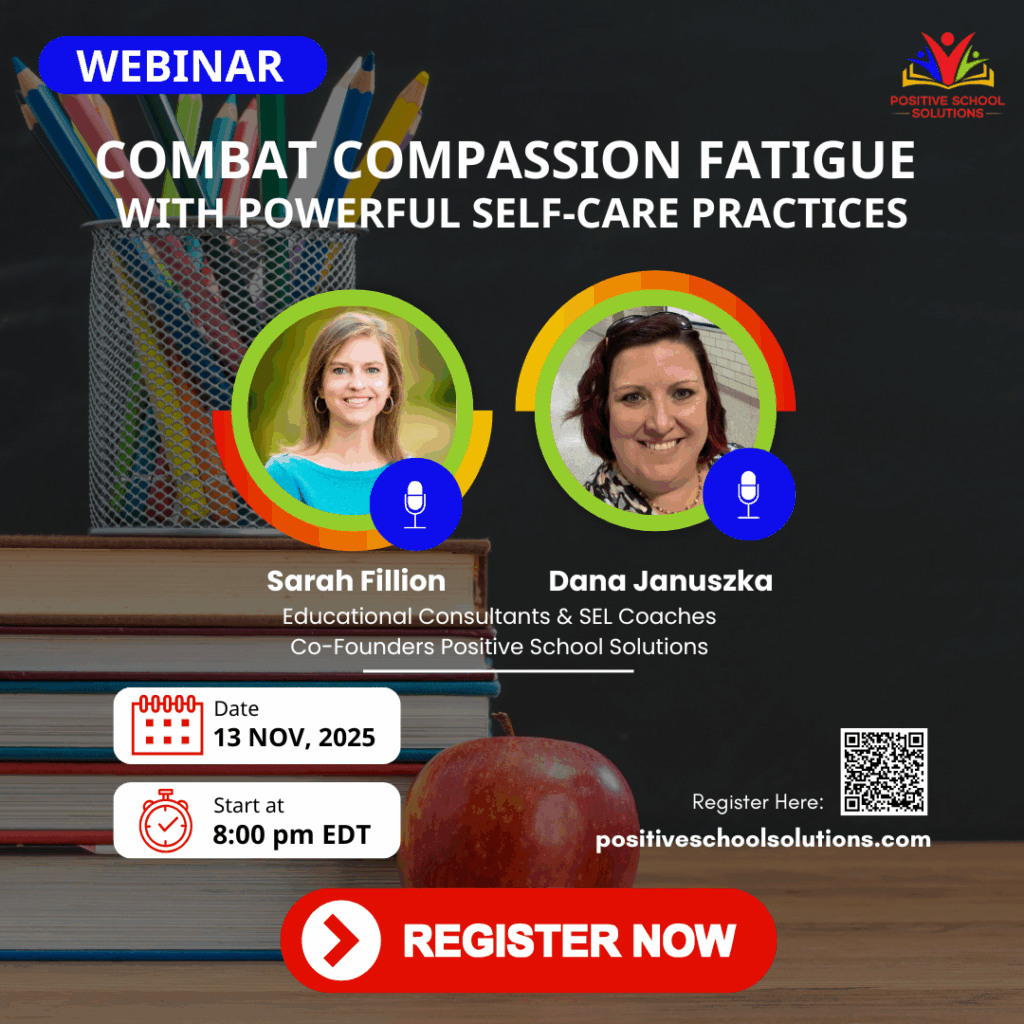Faculty Meeting Plans
Faculty/Staff meetings are opportunities to deliver short professional development that is impactful in cultivating a sense of community and raising the quality of instruction in the building.
Our faculty meeting plans are complete with all the tools you need to use them right away to create meaningful and thought-provoking meetings that support your staff through meeting the social emotional learning needs of adults.
Get started today with one of these options
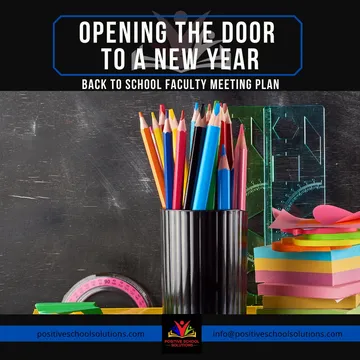
Opening the Door to a New Year
Bringing staff together for the opening day of school is critical to setting the tone for the entire school year. This faculty meeting will help inspire your staff to work together this year to learn, grow, and experience positive student outcomes.

Creating a Unified Vision
In order to create an optimal learning environment for all students, we must define what we as a school community believes that looks, sounds, and feels like for both the adults and students.
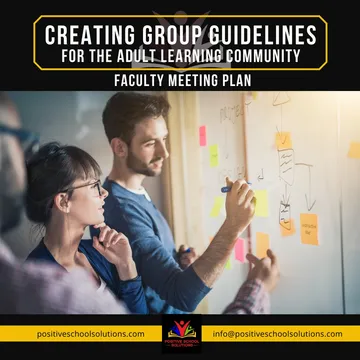
Creating Group Guidelines for the Adult Learning Community
Having a set of group guidelines increases productivity at meetings through providing clarity in the behaviors and expectations for the individual and collective team. This meeting plan will help you lead your staff through a collaborative process.

Creating Clear Communication Channels
This faculty meeting will support you in guiding staff through an exploration of their own communication preferences and identifying ways to establish clear channels of communication with various stakeholders in the learning community.

Building a Strong Foundation
This faculty meeting will support the adult community in identifying the procedures students need to know in individual and common spaces throughout the learning environment to focus on the content each teacher specializes in.

Goal Setting
When focusing on one area and devoting time and attention to practice, goal setting is one way we can help ourselves to grow. This faculty meeting plan will support you in leading staff members to set SMART goals that they’ll work on over time.
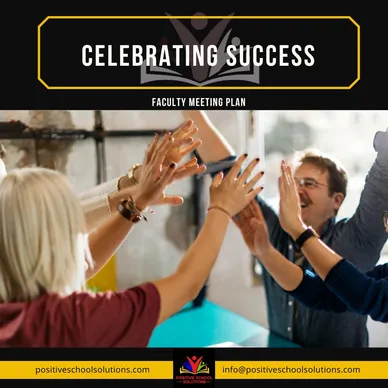
Celebrating Success
To lead staff in a celebration of their professional successes & accomplishments and highlight how personal growth positively impacts others. Note: This faculty meeting can be used at the end of any period of time – end of year, end of quarter, etc.

Whole School Spaces Check-In
Taking time to review the expectations for whole school spaces allows staff to ensure the routines are developmentally appropriate for students and are practiced on a regular basis. This faculty meeting supports the adult community in reviewing the procedures students follow in common spaces throughout the learning environment.

Expressing & Cultivating Gratitude
Gratitude is a powerful emotion and leads to a multitude of positive outcomes. This faculty meeting will support you in expressing gratitude for staff and creating the conditions for a culture of gratitude towards others.

Closing Out the School Year
Each school year presents unique successes and challenges, and ending it smoothly creates a sense of accomplishment and positive impression for the students, staff, and families in the learning community. This faculty meeting will provide staff with inspiration and time to plan activities that will lead students through reflecting on their academic and social emotional growth and build student hope for the future.
Or these options for cultivating self-care
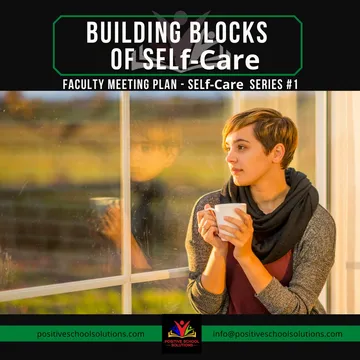
Building Blocks of Self-Care
Optimal learning environments are best created by teachers that have strong social emotional learning skills and regularly practice self-care. This faculty meeting will support staff in creating good habits to build a strong foundation for SELf-care throughout the year so they are able to feel like their best self at work every day.

Connecting Values to Self-Care Practices
Self-care is taking action to preserve or improve our personal health, so self-care will, and should, look different for each individual – especially if we live our lives according to our values. This faculty meeting plan will support you in leading staff through exercises to identify activities that align with their values to replenish their personal and professional self.

Self-Care & Resilience
In order for educators to best serve students, they must be able to recognize and manage compassion fatigue effectively. In this faculty meeting, staff will participate in activities that foster a supportive school culture that promotes resilience and well-being. In doing so, you’ll cultivate a school environment where educators feel empowered, supported, and equipped to create a positive impact on student learning and well-being.
Ready to Elevate Your Faculty Meetings? Check out our course!
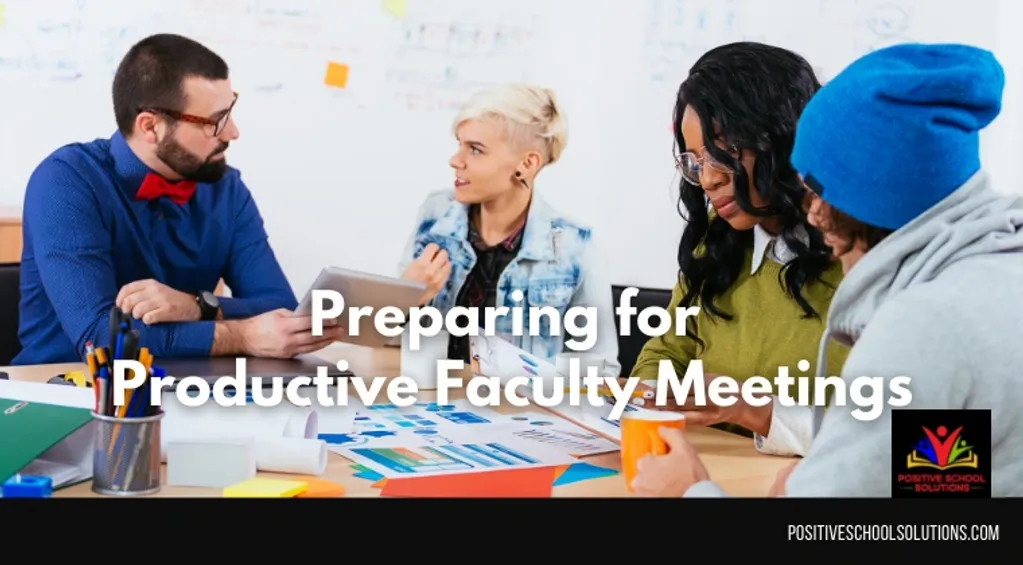
Preparing for Productive Faculty Meetings
Leading from the front means each faculty meeting is intentionally designed as an opportunity to learn – staff members expand and deepen their knowledge on relevant content, as well as best teaching practices that can be brought back into the classroom. In this course, the BASIC structure to creating high-quality faculty meetings that increase focus and participation is explained and best principles of practice for adult learning are reviewed.
Want to Learn More About Our Faculty Meeting Plan Options
or Customize Something For Your School?

